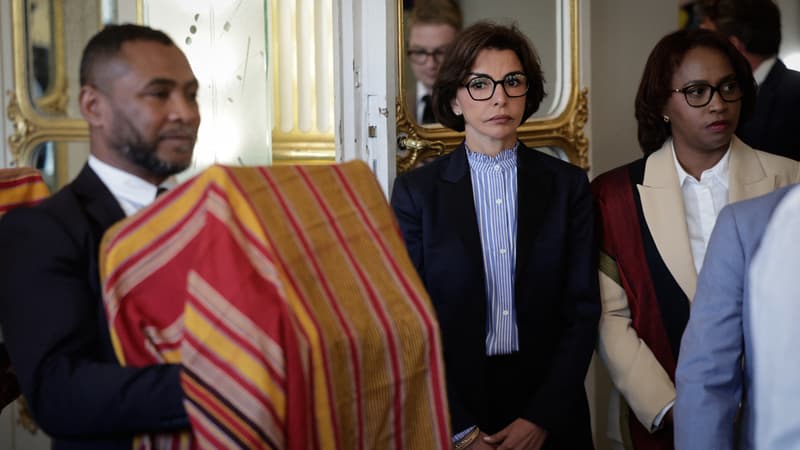More than a century later, three witnesses of skulls of a massacre committed by the French army in the early hours of the colonization of Madagascar were returned on Tuesday to the island of the Indian Ocean, after a process qualified as “historical” by the two countries.
A claimed for decades by Antananarivo, these bones had been carried as trophies by French colonial troops after a murderous attack in 1897 in Ambky, a former real capital of Menabe.
King Toera’s alleged skull
Until now, these skulls, one of which is presumed to belong to King Toera, remained in the National Museum of Natural History in Paris along with hundreds of other Malgache human remains.
“These skulls have entered the national collections in conditions that contravene in a very objective way to human dignity and in a context of colonial violence,” French Minister of Culture Rachida Dati said on Tuesday, on Tuesday of the restitution ceremony in Paris.
“An open injury in the heart”
“His absence was for more than a century, 128, an open injury in the heart of our island,” said Malgasica Volamiranty Donna Mara.
Transported to the Ministry of Culture in trunks covered with traditional fabrics, these three skulls in the Sakalava ethnic group were symbolically given to the Malgache authorities on Tuesday and will find that the island of the Indian Ocean on August 31 was buried after several days of ceremonies.
His return to Madagascar “marks a historical event,” estimated that Rachida Dati, remembering the commitment made in 2017 by President Emmanuel Macron to accelerate France’s restituciones to his old colonies. Other ancient colonial powers are dedicated to this same path.
The “conditions” of “forgiveness”
In a visit to Madagascar in April, the French head of state had asked for this restitution of his wishes to create the “conditions” of a “forgiveness” in front of the “bloody and tragic pages” of the colonization of the island, which began in 1897 until independence in 1960.
Legally, the restitution of the Malgache skulls also marks the first application in France of a framework law approved at the end of 2023 that facilitates the return of human remains by allowing the repeal of the principle of inalienability of public collections without going through the legislative route.
A framework bill on this time the restitution of cultural goods were presented in the Council of Ministers at the end of July and Rachida Dati said he expected his “fast” adoption on Tuesday in Parliament, despite the risks of falling in the government that will undergo a dangerous vote of confidence on September 8.
“All this will continue on the way (…). The issue of restitutions is national consensus,” said the Minister of Culture. Welcoming the next return to his island of Tres Skull, his counterpart Malgache spoke on Tuesday a “gesture of immense reach” that opens a “new era of cooperation” between the two countries.
No “a simple object of collections”
These skulls are not “a simple object of collections,” said Volamiranty Donna Mara. “They are the invisible and indelible link that unites our present to our past.”
According to Rachida Dati, the scientific and historical work that preceded the restitution made it possible to establish “with certainty” that the returned skulls came well from the Sakalava ethnic group, but without being able to formally attribute them to King Tora.
“From a scientific point of view it is allowed to suppose that one of these three skulls is that of King Toera without having absolute certainty from a scientific point of view,” said the French minister.
In 2020, France had returned to Algiers 24 Calaveras saying that they were skulls of anti -colonials Algerians. However, two years later, an investigation by New York Times had established that only six of these skulls belonged, without a doubt possible for combatants and that the origin of the other bones was very uncertain.
Source: BFM TV


